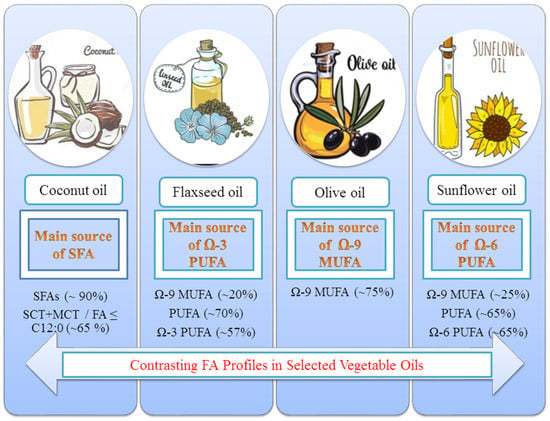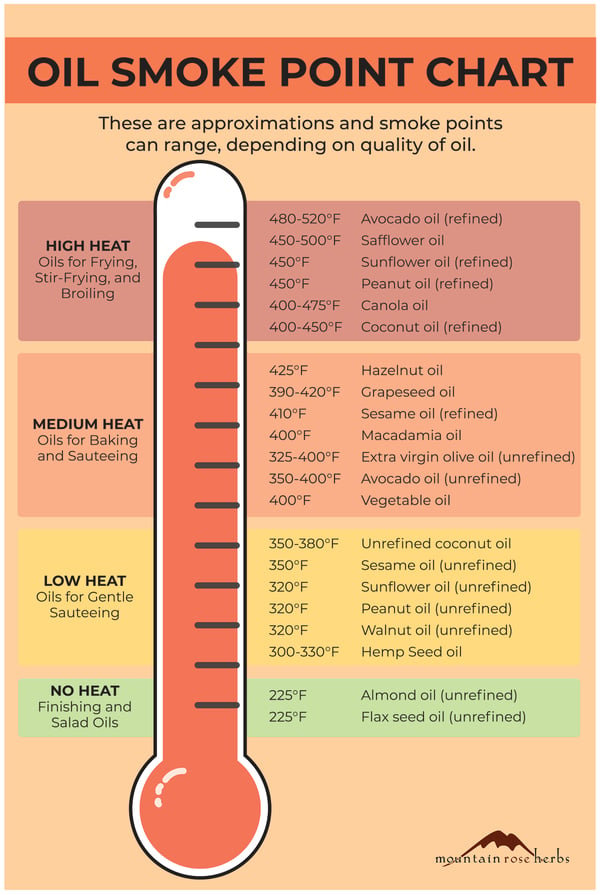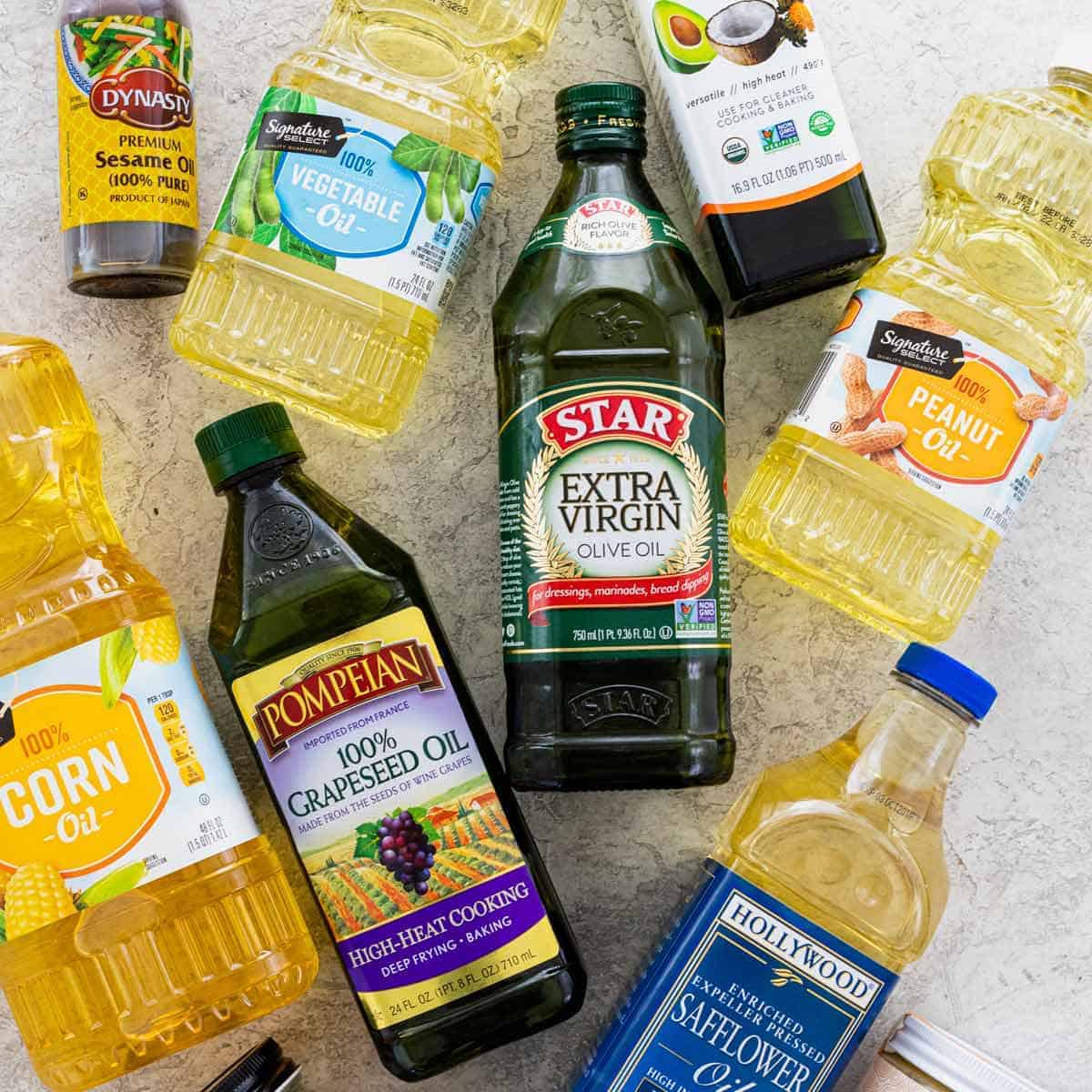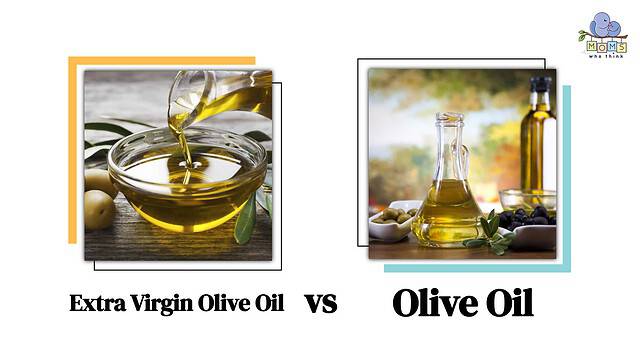Introduction

When it comes to cooking oils, the options seem endless. Two popular choices are sunflower oil and vegetable oil. Whether you’re whipping up a stir-fry or deep-frying your favorite crispy snacks, choosing the right oil is essential. In this article, we will compare sunflower oil and vegetable oil, examining their nutritional value, cooking performance, health impact, and culinary uses. By understanding the differences between these oils, you can make an informed decision about which one is best suited for your cooking needs. So, let’s dive in and explore the world of sunflower oil vs. vegetable oil!
Overview Of Sunflower Oil And Vegetable Oil
Sunflower oil and vegetable oil are two commonly used cooking oils. Sunflower oil is extracted from the seeds of sunflowers, while vegetable oil is a blend of various plant-based oils such as soybean oil, canola oil, and corn oil. Both oils are versatile and widely used in cooking due to their neutral flavors and high smoke points. They are commonly used for frying, baking, sautéing, and salad dressings. While sunflower oil is known for its light and mild flavor, vegetable oil offers a more versatile and balanced option. Each oil has its own unique benefits and culinary uses, making them valuable additions to any kitchen pantry.
Health Benefits And Differences Between Cooking Oils
Cooking oils play a crucial role in our diet, and understanding their health benefits and differences is important. Sunflower oil and vegetable oil have their unique advantages. Sunflower oil is rich in vitamin E, which has antioxidant properties and promotes healthy skin and immunity. On the other hand, vegetable oil is a blend of different plant-based oils, providing a balance of nutrients like omega-3 and omega-6 fatty acids. It is also known to have a milder flavor compared to sunflower oil. Both oils are low in saturated fats, making them heart-healthy options for cooking.
Nutritional Value

When it comes to the nutritional value of sunflower oil and vegetable oil, both offer beneficial components. Sunflower oil is rich in vitamin E, which acts as an antioxidant and supports healthy skin and immune function. On the other hand, vegetable oil is a blend of various plant-based oils, providing a balance of nutrients like omega-3 and omega-6 fatty acids. It is also important to note that both oils are low in saturated fats, making them heart-healthy options for cooking. Incorporating either sunflower oil or vegetable oil into your diet can contribute to a well-rounded nutritional profile.
Sunflower Oil Nutritional Information
Sunflower Oil is packed with essential nutrients that contribute to a healthy diet. It is a good source of vitamin E, an antioxidant that helps protect cells from damage, supports a healthy immune system, and promotes skin health. It is also rich in unsaturated fats, including monounsaturated and polyunsaturated fats, which are beneficial for heart health when consumed in moderation. Additionally, Sunflower Oil contains omega-6 fatty acids, which play a role in brain function and growth. With its nutrient profile, Sunflower Oil makes a nutritious addition to any culinary creation.
Vegetable Oil Nutritional Information
Vegetable oil is a widely used cooking oil that offers a range of nutritional benefits. It is low in saturated fats compared to other oils, making it a healthier option for heart health. One serving of vegetable oil contains approximately 14 grams of saturated fat, 48 grams of monounsaturated fat, and 36.4 grams of polyunsaturated fat. It is also a good source of vitamin E and vitamin K. However, it is important to consume vegetable oil in moderation due to its high calorie content. Regular intake of vegetable oil can contribute to a balanced diet and support overall well-being.
Cooking Performance

When it comes to cooking performance, sunflower oil and vegetable oil have some notable differences.
Sunflower oil has a higher smoke point compared to vegetable oil, making it a better choice for high-heat cooking methods such as frying and sautéing. It can withstand temperatures up to 440°F (227°C) without breaking down or producing harmful smoke. This makes it ideal for crispy fried foods.
On the other hand, vegetable oil has a slightly lower smoke point, typically around 400°F (204°C). While still suitable for most cooking applications, it may not be the best option for deep frying or cooking at extremely high temperatures.
Additionally, sunflower oil has a mild flavor that doesn’t overpower the taste of dishes, making it versatile for a wide range of recipes. Vegetable oil, on the other hand, has a neutral flavor that is well-suited for baking and dishes where the taste of the oil should not be prominent.
Overall, the cooking performance of sunflower oil and vegetable oil depends on the specific cooking method and desired flavor profile of the dish.
Smoke Point And Versatility Comparison
Sunflower oil outperforms vegetable oil in terms of smoke point and versatility. It has a higher smoke point of 440°F (227°C), making it suitable for high-heat cooking methods like frying and sautéing. Vegetable oil, with a slightly lower smoke point of around 400°F (204°C), may not be the best choice for deep-frying or cooking at extremely high temperatures. Additionally, sunflower oil has a mild flavor that doesn’t overpower dishes, allowing it to be used in a wide range of recipes. Overall, sunflower oil provides superior cooking performance and versatility compared to vegetable oil.
Flavor Profiles And Cooking Applications
Sunflower oil and vegetable oil have distinct flavor profiles that lend themselves well to different cooking applications. Sunflower oil has a mild, neutral taste that makes it versatile for various dishes. Its subtle flavor allows it to enhance the natural flavors of ingredients without overpowering them, making it ideal for sautéing, stir-frying, and baking. On the other hand, vegetable oil has a slightly stronger, more neutral taste that can complement both sweet and savory dishes. It is commonly used for deep-frying, pan-frying, and in recipes where a neutral flavor is desired.
Health Impact

When it comes to the health impact of sunflower oil vs vegetable oil, there are some important factors to consider. In terms of saturated fats and cholesterol levels, both oils are relatively low, making them heart-healthy options. However, sunflower oil has a higher vitamin E content than vegetable oil, which can provide antioxidant benefits and support overall well-being. Additionally, the high polyunsaturated fats content in sunflower oil, specifically Omega-6 fats, can contribute to a healthy balance of essential fatty acids in the body. It’s important to note that moderation is key when consuming any type of oil to maintain a balanced diet.
Saturated Fats And Cholesterol Levels Comparison
When comparing sunflower oil and vegetable oil, it is important to consider their levels of saturated fats and cholesterol. Both oils are relatively low in saturated fats and cholesterol, making them heart-healthy choices. However, sunflower oil contains higher levels of vitamin E compared to vegetable oil, providing additional antioxidant benefits. Additionally, sunflower oil is rich in polyunsaturated fats, specifically Omega-6 fats, which support a healthy balance of essential fatty acids in the body. It is important to consume oils in moderation as part of a balanced diet to maintain overall health.
Effect On Heart Health And Overall Well-being
Both sunflower oil and vegetable oil have positive effects on heart health and overall well-being. Due to their low levels of saturated fats and cholesterol, both oils can help reduce the risk of cardiovascular diseases. The unsaturated fats in these oils have been shown to lower total cholesterol and LDL cholesterol levels, promoting a healthier heart. Additionally, the vitamin E content in sunflower oil provides antioxidant benefits, supporting overall well-being. However, it is important to use these oils in moderation as part of a balanced diet for optimal results.
Culinary Uses

Sunflower oil and vegetable oil both have versatile culinary uses. Sunflower oil is commonly used in salad dressings, marinades, and sautéing due to its neutral flavor. It can also be used in baking for moist and tender results. On the other hand, vegetable oil is often preferred for deep frying due to its high smoke point and ability to withstand high temperatures. Its mild flavor makes it suitable for a wide range of recipes, including stir-fries and sauces. Both oils provide excellent texture and contribute to the overall taste of the dishes they are used in.
Ideal Uses In Different Cuisines
Sunflower oil and vegetable oil have their own unique uses in various cuisines around the world. Sunflower oil is commonly used in Mediterranean and Eastern European cuisines, where it enhances the flavors of dishes like salads, pasta, and roasted vegetables. Its neutral flavor allows the other ingredients to shine through. On the other hand, vegetable oil is widely used in Asian cuisines, particularly in stir-fries and deep-fried dishes, as it can withstand high heat without breaking down. Its mild flavor complements the bold and aromatic ingredients commonly found in Asian cooking. Overall, both oils can be adapted to different cuisines and contribute to the deliciousness of the final dishes.
Texture And Taste Influence In Recipes
When it comes to the texture and taste of recipes, the choice between sunflower oil and vegetable oil can have a significant influence. Sunflower oil has a lighter texture and a mild, neutral flavor that allows the other ingredients to take center stage in a dish. This makes it a great choice for delicate recipes like salad dressings or light sautés. On the other hand, vegetable oil has a slightly thicker texture and a more subtle taste. This makes it perfect for recipes like stir-fries or deep-fried dishes where a bolder flavor is desired. By selecting the right oil, you can enhance the overall taste and texture of your recipes.
Conclusion

In conclusion, when considering sunflower oil versus vegetable oil, it is important to take into account the specific needs and preferences of your cooking. While both oils have their benefits, sunflower oil is best suited for delicate recipes due to its light texture and neutral flavor. On the other hand, vegetable oil is more versatile and can withstand higher temperatures, making it ideal for stir-fries and deep-fried dishes. Ultimately, the choice between sunflower oil and vegetable oil depends on the desired taste, texture, and cooking method. Remember to always consider the smoking point and health implications when using cooking oils.
Pros And Cons Of Sunflower Oil And Vegetable Oil
When it comes to sunflower oil and vegetable oil, each has its own set of pros and cons.
Pros of Sunflower Oil:
- High in Vitamin E, which is an antioxidant that helps protect the body’s cells from damage.
- Contains monounsaturated and polyunsaturated fats, which are considered heart-healthy fats.
- Light flavor and texture, making it ideal for delicate dishes.
Cons of Sunflower Oil:
- Lower smoke point compared to vegetable oil, which means it may not be suitable for high-heat cooking methods.
- The polyunsaturated fats in sunflower oil can become unstable when exposed to heat and air, leading to the formation of harmful compounds.
Pros of Vegetable Oil:
- Versatile oil that can withstand high temperatures, making it suitable for frying and deep-frying.
- Neutral flavor, allowing the natural flavors of the ingredients to shine.
- Contains a mix of different oils, providing a balance of different nutrients.
Cons of Vegetable Oil:
- High in omega-6 fatty acids, which, when consumed in excess, may have inflammatory effects on the body.
- Some vegetable oils may be highly processed and contain trans fats, which are considered unhealthy.
Overall, the choice between sunflower oil and vegetable oil depends on your specific needs and preferences, as well as the cooking method and desired flavor. It is important to consider their pros and cons and make an informed decision.
Best Practices For Cooking With Each Oil
When cooking with sunflower oil, it is best to use it for pan frying or sautéing at medium to high heat. It is important to avoid overheating the oil as it can become unstable and form harmful compounds. Additionally, store sunflower oil in a cool, dark place to maintain its freshness and quality.
On the other hand, vegetable oil is versatile and can withstand high temperatures, making it ideal for deep frying and stir-frying. It is recommended to use vegetable oil with a high smoke point to ensure optimal cooking results. It is also advisable to check the label and choose a vegetable oil that is unrefined and free from trans fats for a healthier option.
FAQ About Sunflower Oil Vs Vegetable Oil: Cooking Oils Compared
Q: What is the main difference between sunflower oil and vegetable oil?
A: The main difference lies in their sources. Sunflower oil is extracted from sunflower seeds, while vegetable oil is a blend of different plant oils such as soybean, canola, and palm oil.
Q: Which oil is healthier, sunflower oil or vegetable oil?
A: Both oils have their health benefits. Sunflower oil is rich in vitamin E and low in saturated fats, making it a good source of antioxidants. On the other hand, vegetable oil is a versatile blend that provides a mix of different healthy fats like omega-3 and omega-6 fatty acids.
Q: Can sunflower oil and vegetable oil be used interchangeably in cooking?
A: Yes, both oils can generally be used interchangeably in cooking. However, sunflower oil has a higher smoke point compared to most vegetable oil blends, making it more suitable for high-heat cooking methods like frying.
Q: Are there any flavor differences between sunflower oil and vegetable oil?
A: Sunflower oil has a mild flavor that works well in dishes where you don’t want the oil to overpower other ingredients. Vegetable oil blends may have a more neutral taste, depending on the specific oils used in the blend.
Q: Which oil is better for baking, sunflower oil, or vegetable oil?
A: Both oils can be used for baking, but some recipes may benefit from the neutral taste of vegetable oil, while sunflower oil can add a slightly nutty flavor to baked goods. Consider the flavor profile of your dish when choosing between the two oils for baking.
Q: Can individuals with nut allergies consume sunflower oil?
A: Yes, individuals with nut allergies can typically consume sunflower oil safely as it is not derived from nuts. However, always check the label to ensure there are no cross-contamination risks if you have a severe allergy.
Q: Do sunflower oil and vegetable oil differ in terms of shelf life?
A: Sunflower oil tends to have a shorter shelf life compared to many vegetable oil blends due to its higher unsaturated fat content. It is recommended to store both oils in a cool, dark place to extend their shelf life and preserve their quality.

Hot Pot Chinese Restaurant, located in Mechanicsville, MD 20659, is a culinary destination that offers a delightful array of Chinese cuisine. From the cozy ambiance to the delectable dishes, Hot Pot Chinese Restaurant is dedicated to providing an exceptional dining experience for all patrons. Since our establishment, Hot Pot Chinese Restaurant has been committed to serving the finest Chinese food, offering a diverse menu that caters to a wide range of tastes. Whether you’re craving traditional favorites like Kung Pao Chicken and Mongolian Beef or seeking out more adventurous options like Szechuan Spicy Hot Pot, our menu has something to satisfy every craving.